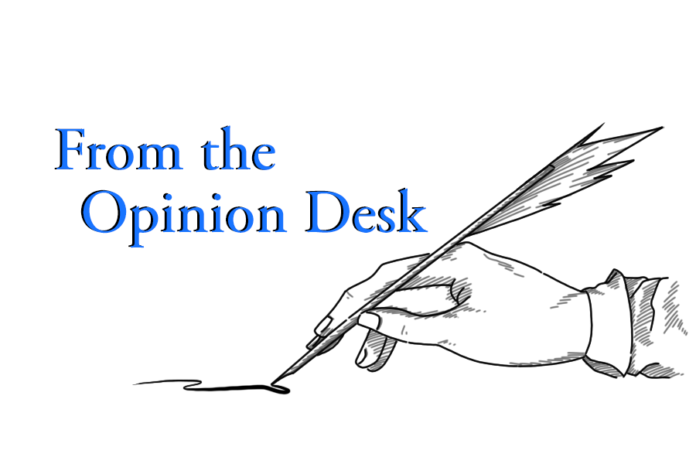We should recognize the importance of public libraries in the face of nation-wide budget cuts
When it comes to libraries, I like to consider myself one of their biggest fans, second only to Rory Gilmore. My fascination began in the second grade when I was issued my first library card and realized it was a ticket to carry a backpack full of “Junie B. Jones” and “Katie Kazoo” books home. But my perception and love for public libraries took on a whole new meaning when I began to volunteer there at 14 years old.
I spent all four years of high school volunteering at my local public library. What began as an exciting opportunity to work in a building filled with books became a four-year journey into the monumental and integral role of public libraries in our discourse and democracy.
As many people might already know, public libraries provide important services to the community that go beyond borrowing books. They hold tutoring programs, tax prep services and provide computers and other important technological sources for productivity and information.
That’s why I was so troubled to learn that the U.S. isn’t doing too well with public libraries. In 2016, the Syracuse University School of Information Studies ranked countries based on the number of libraries per 100,000 residents. The U.S. ranked 62 with only 30.35 libraries per 100,000 residents.
Libraries are largely funded at the state and local level, with very little contribution from the federal government. In 2014, the state with the highest per capita public library expenditure was Washington, D.C. at $82, with the lowest spending at $16 per capita in Mississippi. Since the 2008 recession, public libraries have seen a drop in funding. Between 2010 and 2012, 23 states reported cuts in funding for public libraries. California’s 2011 to 2012 budget for public libraries saw a 50% cut. It’s shocking that in an age with an inundation of information the U.S. doesn’t allocate more funding and resources for public libraries. The U.S. is lagging behind the global community.
During my years volunteering at the library I was amazed by all the programs and services that libraries offered, all free of cost for their patrons. But as time went on, I realized that libraries are some of the few physical and accessible spaces left where citizens can see American values and democracy thriving.
At 14 years old, I signed up to volunteer at the library thinking that my work would largely revolve around shelving books and maintaining a clean and organized space. At some point, I noticed that many of the programs the library offered were actually created and run by the community, not distant library management. I was inspired to see other community members who saw problems — like lack of financial literacy and college application confusion — and decided to take the initiative to fix this.
At 16 years old, I joined the library’s Teen Advisory Board (TAB) with some of my friends and met other like-minded teens from neighboring high schools. TAB allowed us to finally share ideas and potential projects for the library that we always had in mind. Within a year, we put on our first community talent show. In April, during National Poetry Month, we set up a stand in the lobby for people to display and share their poetic and artistic pieces with other community members. The library was the first place where I was given the opportunity to work with my friends and make the kind of changes that I always hoped to see.
Volunteering at the library allowed me to finally understand the social and cultural fabric of the community in which I had been born and raised. I grew up with a somewhat vague understanding of how unique my community was, but the library instilled a new sense of appreciation in me for its diversity. Whether that be the Spanish storytime or the day-long arts and crafts event for Chinese New Year, the library was where I got to see a beautiful side of my home to which I previously never really paid attention.
Libraries aren’t just buildings created and run by distant management. They’re run by librarians and community members who spend time working closely with, and tending to the needs of others. Those involved in their local library are dedicated to creating a more equitable and just environment for their children to grow up in. Supporting libraries doesn’t just mean supporting access to books — it empowers and supports community members and their grassroots activism.
Written by: Simran Kalkat –– skkalkat@ucdavis.edu





